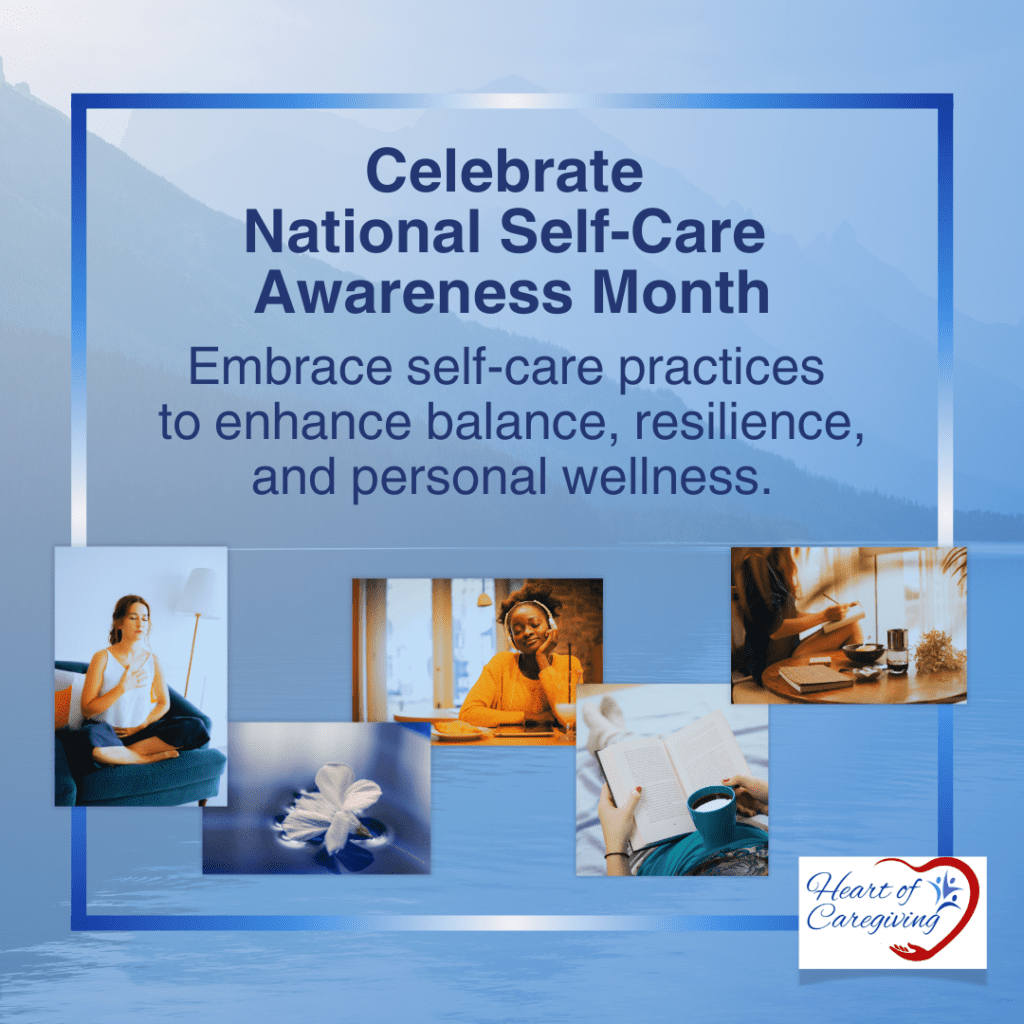Embracing the Full Spectrum of Self-Care: A Holistic Approach
September is National Self-Care Awareness Month, and while self-care often evokes images of spa days and indulgent relaxation, it encompasses so much more. True self-care involves a multifaceted approach that nurtures our well-being on many levels—mentally, emotionally, physically, socially, spiritually, financially, and even environmentally. When we embrace and prioritize all these aspects of self-care, we build resilience, cultivate balance, and fortify our ability to manage life’s demands.
Self-care is not selfish. In fact, it’s an essential practice for maintaining health and wellness in an increasingly busy world. Let’s explore the different types of self-care, why each is important, and practical ways to integrate them into your daily routine.
1. Mental Self-Care
Mental self-care focuses on nurturing your mind. It involves activities that stimulate, challenge, and engage your brain. Reading, learning a new skill, or solving puzzles can promote mental well-being and prevent stagnation.
Why it’s important:
Mental self-care sharpens your cognitive abilities and helps you maintain clarity and focus, which is especially important when juggling multiple responsibilities.
How to practice it:
➢ Read a book that challenges your perspectives.
➢ Take up a hobby that requires focus, like knitting or chess.
➢ Solve puzzles or play brain-stimulating games like Sudoku or crosswords.
➢ Listen to a podcast on a subject that interests you.
2. Emotional Self-Care
Emotional self-care is about acknowledging, understanding, and managing your emotions. Whether it’s through journaling, therapy, or setting boundaries, emotional self-care allows you to process your feelings and prevent emotional overload.
Why it’s important:
Emotional self-care helps regulate emotions and cultivates emotional resilience. By taking time to reflect and process emotions, you can avoid burnout and maintain a positive outlook.
How to practice it:
➢ Write in a journal to process your thoughts and feelings.
➢ Practice positive affirmations or mantras.
➢ Set boundaries to protect your emotional well-being.
➢ Allow yourself to feel and release emotions rather than suppressing them.
3. Physical Self-Care
Physical self-care revolves around caring for your body. Exercise, nutrition, sleep, and even relaxation are all essential aspects of physical well-being. When you honor your body’s needs, you increase your energy levels and reduce stress.
Why it’s important:
Physical self-care enhances not only your physical health but also your mental well-being. The body and mind are deeply interconnected, and caring for your body can lead to improved mood and overall health.
How to practice it:
➢ Get regular exercise, whether it’s a walk, a workout, or a yoga session.
➢ Prioritize sleep and aim for 7-9 hours per night.
➢ Stay hydrated throughout the day.
➢ Nourish your body with healthy, balanced meals.
4. Social Self-Care
Social self-care involves fostering meaningful connections with others. Whether through friendships, family, or pets, social interactions can lift your spirits and help you feel connected to your community.
Why it’s important:
Humans are inherently social beings, and meaningful relationships provide emotional support, reduce loneliness, and improve mental health.
How to practice it:
➢ Schedule regular coffee or lunch dates with friends or loved ones.
➢ Engage in acts of kindness to foster connection and gratitude.
➢ Spend time with your pets, as animals offer companionship and emotional comfort.
➢ Volunteer in your community to build new relationships and contribute to something greater.
5. Spiritual Self-Care
Spiritual self-care involves connecting with something greater than yourself, whether through religion, nature, meditation, or any practice that nurtures your inner self. It allows you to reflect on your values and find meaning and purpose in life.
Why it’s important:
Spiritual self-care helps cultivate a sense of peace and purpose. It allows you to stay grounded and centered, even during challenging times.
How to practice it:
➢ Meditate or practice mindfulness to calm your mind and connect inward.
➢ Spend time in nature to reflect and recharge.
➢ Create a vision board to focus on what brings you meaning.
➢ Engage in prayer or spiritual reading that aligns with your beliefs.
6. Practical Self-Care
Practical self-care focuses on organizing and managing your daily life efficiently. By staying on top of tasks like finances, meal planning, and household organization, you reduce stress and create a sense of order and accomplishment.
Why it’s important:
Practical self-care empowers you to feel more in control of your life, reducing chaos and anxiety that can arise from feeling overwhelmed.
How to practice it:
➢ Organize your finances and develop a budget.
➢ Create a meal plan for the week to reduce daily decision fatigue.
➢ Set up routines that simplify your day-to-day life.
➢ Clean and organize your living space to foster a calm environment.
7. Environmental Self-Care
Environmental self-care is about creating spaces that support your well-being. Your physical surroundings can greatly impact your mood, productivity, and overall health.
Why it’s important:
A clean, organized, and pleasant environment reduces stress and promotes mental clarity, while cluttered spaces can contribute to anxiety and frustration.
How to practice it:
➢ Declutter and organize your home or workspace.
➢ Add elements that bring you joy, such as plants or personal mementos.
➢ Create a dedicated space for relaxation or meditation.
➢ Ensure your environment is comfortable, safe, and inviting.
8. Financial Self-Care
Financial self-care involves taking control of your financial well-being. This includes budgeting, saving, and making mindful decisions about your financial future. When your finances are in order, you can reduce anxiety and focus on your overall well-being.
Why it’s important:
Financial self-care helps you feel secure and in control of your financial future, reducing stress associated with money management. It can also help you make intentional choices about how you spend and save.
How to practice it:
➢ Create a budget that aligns with your financial goals.
➢ Set up automatic savings to build an emergency fund.
➢ Review your expenses regularly to identify areas for improvement.
➢ Seek financial education or counseling to manage debt or plan for long-term financial health.
Conclusion
Self-care is about tuning into your needs and nourishing every aspect of yourself—mind, body, and spirit. By understanding and practicing the various types of self-care, you can enhance your overall well-being and navigate life’s challenges with greater resilience and balance. This National Self-Care Awareness Month, take time to reflect on your self-care habits and commit to incorporating these practices into your daily life. Because when you take care of yourself, you’re better equipped to care for everything else.
For solutions for caregivers’ common mistakes, check out 21 Mistakes Caregivers Make & How to Avoid Them: Solutions and Strategies to Reduce Stress and Increase Happiness, available on Amazon! Are you looking for a dynamic speaker on caregiver empowerment? Go to my speaking page, and let’s connect!
The advice offered is for general information only; please consult your healthcare team, legal, or financial advisors for guidance.


